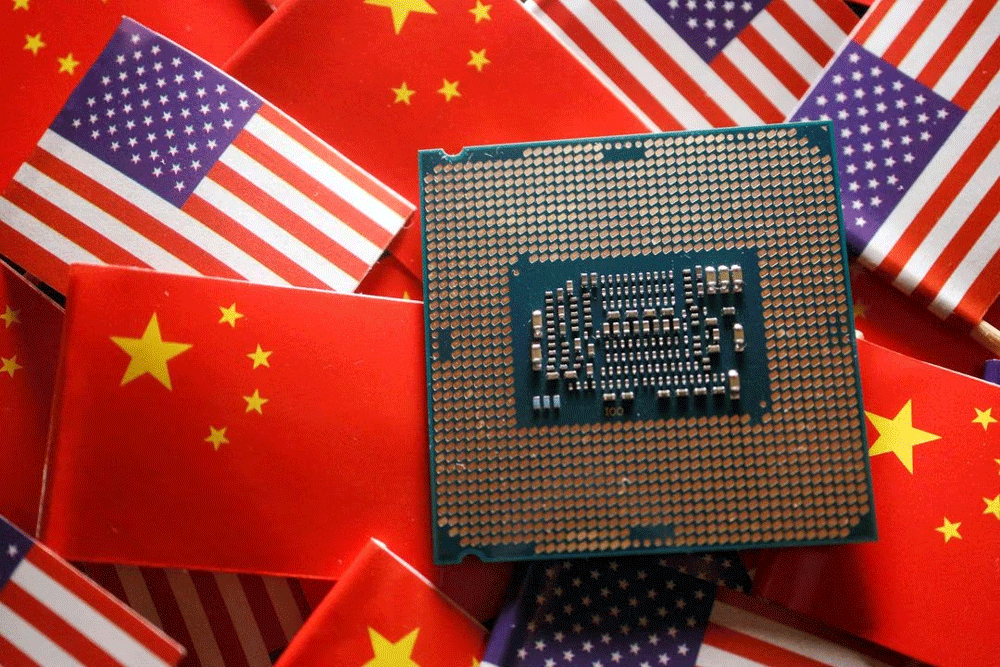The U.S. government is currently debating whether to extend the Science and Technology Agreement later this year, though bilateral relations are in their worst state in decades.

For more than 40 years, the US-China Science and Technology Agreement (STA) has played a significant role in cooperation, suggesting potential for cooperation in a variety of fields.
The U.S. government is currently debating whether to extend the Science and Technology Agreement later this year, though bilateral relations are in their worst state in decades.
With regard to the oldest U.S.-China cooperation agreement, Antony Blinken’s trip to Beijing sparks discussion about whether the advantages of working with China outweigh the danger of arming a rival with alternative rules. It is anticipated that the US-China agreement will mark a turning point in their relationship.
The 1979 agreement, which Beijing and Washington signed and have renewed roughly every five years since, has been hailed as a stabilising factor for relations between the two nations.
It allows for cooperation in fields like atmospheric and agricultural science as well as fundamental physics and chemistry research. It created the framework for a boom in scholarly and business interactions.
These exchanges aided China’s development into a technological and military superpower, but worries that Beijing is stealing American technological and commercial achievements have raised doubts about the agreement, which is set to expire on August 27.
Ending the STA, according to those who support renewing it, would stifle collaboration between academia and business.
The officials, who spoke on the condition of anonymity due to the sensitive nature of the subject, said that while the majority of Americans appear to be in favour of renewal, a growing number of government officials and lawmakers believe that given competition between the two nations, cooperation in science and technology makes less sense.
Rep. Mike Gallagher, the Republican chair of a congressional select committee on China, declared that extending the Science and Technology Agreement between the U.S. and China “would only further jeopardise our research and intellectual property.” “The administration must permit the termination of this dated agreement.”
Regarding “internal deliberations on negotiations,” the State Department declined to comment. Additionally declining to comment was the National Security Council.
According to the Chinese embassy in Washington, American officials were approached by Chinese representatives a year ago to discuss the agreement, which served as the foundation for 40 years of “fruitful” cooperation.
Embassy spokesperson Liu Pengyu said, “As far as we know, the U.S. side is still conducting an internal review on the renewal of the agreement,” adding that both parties may decide to make changes to the original agreement.
Before the agreement’s expiration, “it is hoped that the U.S. side will expedite the internal review,” he said.
Conflicting opinions exist within the U.S. government, including the State Department, which is in charge of the negotiations, regarding whether to renew the agreement, let it expire, or renegotiate it in order to include protections against industrial espionage and demand reciprocity in data exchanges, according to the officials.
Renegotiating the deal, they warned, could backfire given the state of relations between the United States and China.
U.S. companies have long criticised Chinese government policies requiring technology transfer, and experts warn against state-sponsored theft of everything from information about NASA’s space shuttle designs to crop seeds made by Monsanto.
The administration of President Joe Biden has sharpened the focus on technological competition.
Kurt Campbell, the U.S. Indo-Pacific coordinator, stated in June at a Hudson Institute forum that “technology will be the cutting-edge arena of global competition in the period ahead, much like nuclear missiles were the defining feature of the Cold War.” Campbell added that the U.S. “will not cede the high ground.”
Supporters of the agreement claim that without it, the U.S. would lose important knowledge of China’s technological advancements.
Denis Simon, a professor at the University of North Carolina at Chapel Hill who studies technology strategy in China, stated that the United States needed to negotiate a fundamentally new agreement because “China friend or China foe, the U.S. needs access to China to understand what’s happening on the ground.”
Because they don’t want the critics of China to get a piece of this and try to rip it apart, the renewal advocates are making an effort to keep this issue somewhat under the radar, he said.
Science and technology collaboration, according to Anna Puglisi, a senior fellow at Georgetown University’s Center for Security and Emerging Technology. In light of China’s strict data export regulations and the country’s restricted access for foreigners to its academic databases, she questions the potential advantages of renewed cooperation.
Transparency and reciprocity are essential, according to Puglisi. “And the United States government needs to do a full accounting of what have we gained from this other than a few meetings,” she continued.